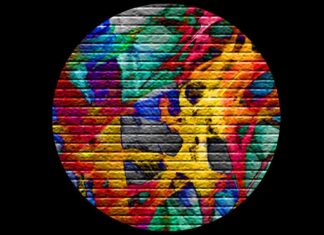Microdose Mushroom, a term coined to describe the practice of consuming small amounts of psychedelic mushrooms, has gained considerable attention in recent years. With its potential to enhance mood, cognition, and creativity, microdosing has emerged as a popular and intriguing approach to psychedelic use. Advocates claim that microdosing can bring about subtle yet positive effects, leading to improved well-being and mental clarity. In this article, we explore the concept of microdose mushroom, its potential benefits, and the growing interest surrounding its use.
Microdose Mushroom refers to the practice of consuming sub-perceptual doses of psychedelic mushrooms, typically one-tenth to one-twentieth of a standard recreational dose. This approach aims to harness the therapeutic potential of psychedelics while minimizing the intensity of the psychedelic experience. Unlike traditional full-dose experiences that may induce profound alterations in perception and consciousness, microdosing focuses on subtle, non-psychedelic effects that are believed to have a positive impact on mood, focus, and overall well-being.
Advocates of microdosing argue that it can provide a range of potential benefits. One commonly reported effect is an improvement in mood and emotional well-being. Users claim that microdosing can lead to a heightened sense of positivity, reduced anxiety, and an overall uplifted mood. This subjective improvement in emotional states has led some individuals to explore microdosing as a potential tool for managing mental health conditions such as depression, anxiety, and post-traumatic stress disorder (PTSD).
Another area of interest is the potential cognitive benefits of microdosing. Some users report enhanced focus, increased creativity, and improved problem-solving abilities. These cognitive enhancements are believed to stem from the modulation of neurotransmitters, such as serotonin and dopamine, which play crucial roles in mood regulation and cognitive functions. It is hypothesized that microdosing may promote neuroplasticity, leading to enhanced neural connectivity and cognitive flexibility.
Additionally, microdose mushroom has gained attention for its potential to facilitate introspection and spiritual experiences. Users often describe a heightened sense of self-awareness, increased mindfulness, and a greater connection to their surroundings. These effects are thought to be related to the ability of psychedelics to dissolve rigid thought patterns and facilitate a more profound exploration of one’s consciousness.
It is important to note that while anecdotal reports on the benefits of microdosing are abundant, scientific research in this field is still limited. Due to the legal and regulatory barriers surrounding psychedelic substances, conducting large-scale clinical trials and research studies has been challenging. However, recent studies and ongoing research are starting to shed light on the potential mechanisms and therapeutic applications of microdosing.
One area of interest is the potential anti-depressant and anti-anxiety effects of microdosing. Preliminary research suggests that microdosing may modulate neural pathways associated with mood regulation, potentially offering a new approach to treating mood disorders. However, further studies are needed to establish the efficacy and safety of microdosing as a therapeutic intervention.
Moreover, microdose mushroom has sparked interest in the field of creativity and problem-solving. Some studies indicate that psychedelics can enhance divergent thinking, a cognitive process associated with generating novel ideas and solutions. This finding has led to speculation that microdosing may serve as a tool for enhancing creativity and innovation, particularly in fields that require thinking outside the box.
Ethical and legal considerations also surround the use of microdose mushroom. While psychedelic substances, including psilocybin mushrooms, remain illegal in many jurisdictions, the growing interest in microdosing has sparked conversations about the need for a shift in drug policy. Advocates argue that a more nuanced and evidence-based approach to psychedelics is required, allowing for controlled access to these substances for research and therapeutic purposes.
In conclusion, Microdose Mushroom is a term used to describe the practice of consuming small, sub-perceptual doses of psychedelic mushrooms. While anecdotal reports suggest potential benefits such as improved mood, cognitive enhancements, and increased creativity, scientific research on microdosing is still limited. Ongoing studies and research are exploring the therapeutic applications of microdosing, particularly in the areas of mental health and cognition. As interest in microdosing continues to grow, it is crucial to balance anecdotal experiences with rigorous scientific investigation to fully understand its potential benefits and risks.
Sub-Perceptual Doses:
Microdose Mushroom involves consuming doses of psychedelic mushrooms that are below the threshold of producing psychedelic effects, allowing for subtle, non-psychedelic experiences.
Mood Enhancement:
Users often report improved mood, reduced anxiety, and an overall uplifted emotional state as a potential benefit of microdosing.
Cognitive Enhancements:
Microdosing is believed to enhance focus, creativity, and problem-solving abilities, potentially stemming from the modulation of neurotransmitters and promoting neuroplasticity.
Spiritual and Introspective Experiences:
Microdosing may facilitate introspection, self-awareness, and a greater connection to one’s surroundings, allowing for a more profound exploration of consciousness.
Potential Therapeutic Applications:
While scientific research is still limited, microdosing shows promise as a potential therapeutic intervention for mental health conditions such as depression, anxiety, and PTSD, as well as in promoting creativity and innovative thinking.
Microdose Mushroom has sparked a cultural shift in the way people perceive and explore psychedelics. Its rise in popularity can be attributed to various factors, including the growing interest in alternative approaches to mental health, increased awareness of the potential therapeutic benefits of psychedelics, and the influence of anecdotal reports shared on social media platforms and online communities.
One notable aspect of the microdose mushroom phenomenon is its appeal to a wide range of individuals. While psychedelic substances were traditionally associated with counterculture movements, microdosing has attracted a diverse audience, including professionals, creatives, and those seeking personal growth. The practice has gained attention not only among individuals with prior psychedelic experiences but also among newcomers to the psychedelic world who are drawn to the potential benefits of microdosing.
An important aspect of microdose mushroom culture is the emphasis on responsible and intentional use. Many microdosers approach the practice with a mindset of self-exploration and personal growth, seeking to harness the potential benefits of psychedelics in a controlled and measured manner. They often adopt a mindful approach, carefully considering their intentions, dosage protocols, and integration practices to optimize their experiences and minimize potential risks.
Microdosing has also fostered a sense of community among its practitioners. Online forums, social media groups, and dedicated microdosing communities provide spaces for individuals to share their experiences, exchange information, and support each other throughout their journeys. This sense of community helps to normalize the practice and creates a supportive environment for individuals to explore the potential benefits of microdose mushroom.
Interestingly, microdose mushroom has sparked conversations beyond the realm of personal use. Researchers, mental health professionals, and policymakers are increasingly interested in exploring the therapeutic potential of microdosing and its possible applications in clinical settings. While the scientific evidence is still emerging, there is growing recognition of the need for rigorous research to understand the potential risks and benefits of microdosing in a controlled and regulated context.
The legality of microdose mushroom also varies across jurisdictions. In some regions, psilocybin mushrooms and other psychedelics are classified as controlled substances, making their possession and consumption illegal. However, there are also places where the legal landscape is evolving, with decriminalization efforts and regulatory frameworks being explored. These legal considerations have sparked discussions about the need for evidence-based drug policies that prioritize public health and safety while recognizing the potential therapeutic value of psychedelics.
Microdosing has not been without its critics and skeptics. Some argue that the reported benefits of microdosing are largely placebo effects or a result of other factors such as lifestyle changes, positive expectations, or the power of suggestion. Skeptics also point out the lack of large-scale, randomized controlled trials that can definitively establish the efficacy and safety of microdosing.
Ethical considerations also come into play when discussing microdose mushroom. The practice raises questions about individual autonomy, personal responsibility, and the boundaries between recreational and therapeutic use. Some argue that access to microdosing should be regulated to ensure safety and minimize potential risks, while others advocate for personal freedom and the right to explore alternative approaches to well-being.
Looking ahead, the future of microdose mushroom remains uncertain but promising. Continued research efforts, both in clinical and non-clinical settings, will shed light on the potential therapeutic applications of microdosing. Legal developments and regulatory frameworks will shape the accessibility and legitimacy of microdosing practices. Public discourse and education will contribute to a better understanding of the risks and benefits associated with microdose mushroom.
In conclusion, microdose mushroom has emerged as a unique and intriguing approach to psychedelic use. Its growing popularity reflects a shifting societal perspective on psychedelics and the recognition of their potential therapeutic benefits. The microdosing community is characterized by responsible and intentional use, a sense of shared experience and support, and a desire to explore the potential benefits of microdosing in a safe and controlled manner. While questions and debates persist, the continued research, legal developments, and public discourse surrounding microdosing will shape its future and potentially unlock new possibilities for mental health and well-being.


















